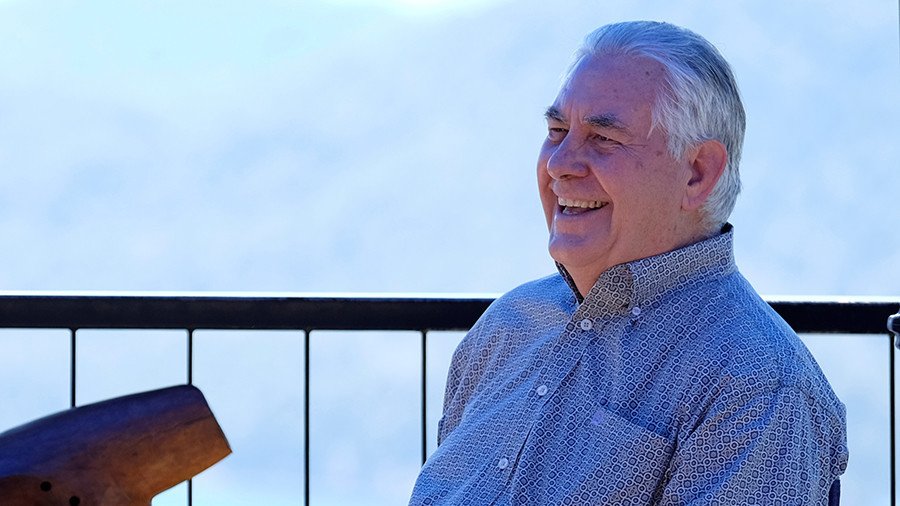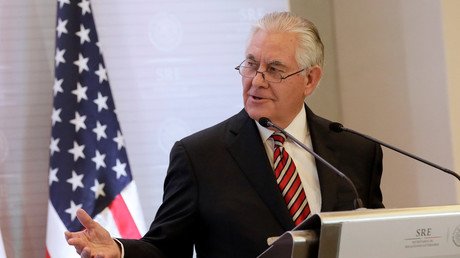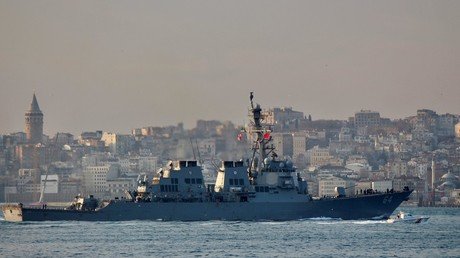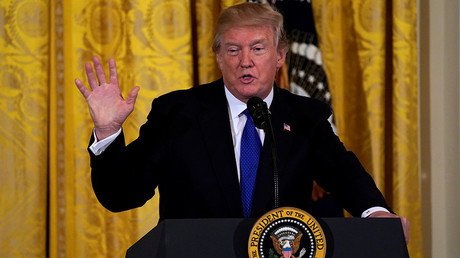Rex Tillerson’s Excellent Adventure in Latin America: Don’t blame the Monroe Doctrine

US Secretary of State Rex Tillerson’s tour of Latin America is a textbook example of what’s been wrong with American hemispheric policy for decades. It’s a policy that can be summed up in two words: neglect and threats.
First, the neglect. Any sensible ‘America First’ foreign policy would begin with our immediate neighborhood. The Western Hemisphere is the part of the world that should be first on our list of concerns.
Instead, it is last. It seems that every other point on the globe where the United States has no discernable interests comes before our own region. US policymakers are more concerned with the Turkey-Syria border (where we’re whipsawed between our Turkish and Kurdish allies), the Syria-Iraq border (where we are maintaining an illegal military presence that is not directed at finishing off ISIS but blocking Iran), the border between the two Koreas, and the Ukraine-Russia border (which we insist must be turned back over to Kiev’s control despite the Rada’s refusal to pass an election law consistent with Minsk 2).
Whatever happened to controlling our own border with Mexico, which was the cornerstone of President Donald Trump’s campaign? That remains hostage to political horse-trading and a budgetary game of chicken in the Washington Swamp. As far as the political class is concerned, the Wall can wait until mañana.
Tillerson is annoyed that, because we have ignored concerns close to home, other countries – notably China – have moved in. Referring directly to China, he declared that the region “does not need new imperial powers,” drawing a sharp response from Beijing. The publicationGlobal Times, seen as reflecting China’s official view, asks: “What did China do in Latin America? China has no military bases in the region and has dispatched no troops to any of the Latin American countries. China is merely doing business with Latin America and all the trade ties are based on the countries’ free will and for mutual benefit.”
Indeed, where exactly is the “imperial” offense? Latin America has seen no Chinese military bases, no Chinese troop deployments, no Chinese drone strikes. There are no Chinese naval maneuvers in demonstration of Beijing’s willingness to use force, as we routinely conduct in waters near China (or off Russia’s Black Sea and Baltic coasts). Rather, the Chinese – displaying what used to be known as Yankee Trader initiative – see business and investment opportunities and are taking them.
It’s a whole new twist on “foreigners doing jobs Americans don’t want to do.”
As for Tillerson’s threats, they were mostly aimed at Venezuela. In particular, the secretary suggested the prospect of sanctions on Venezuelan oil. Included was the usual boilerplate that sanctions would be aimed at the “regime,” not the “Venezuelan people” – as though it has ever been realistic to expect harm would not fall hardest on the most vulnerable people in the target country. The secretary described the US’ goal as “encouraging the regime to return to its constitution and allow the people of Venezuela’s voice to be heard in the selection of their leaders.” Evidently that means Uncle Sam is the arbiter of what is or is not in accordance with other countries’ constitutions and has the right to assert our voice on behalf of “the people” of other countries regarding the “selection of their leaders.”
Tillerson unconvincingly denied the goal was regime change in Caracas, but ruffled feathers with the suggestion that the Venezuelan military could take action: “In the history of Venezuela and in fact the history in other Latin American and South American countries, often times, it is the military that handles that,” he said. “When things are so bad that the military leadership realizes that it just can’t serve the citizens anymore, they will manage a peaceful transition,” he said. But he added: “Whether that will be the case here or not, I do not know.” Perhaps Tillerson really doesn’t know, but why does one suspect that people in other US agencies who specialize in such operations might?
If Tillerson had sought to confirm the worst image of the United States in the minds of Latin Americans, he could not have done a better job. Ironically, he tried to conflate that image with the Monroe Doctrine, which he said“clearly has been a success, because… what binds us together in this hemisphere are shared democratic values.” Really? That would have been big news to President James Monroe, who promulgated the Doctrine back in 1823 when no other country in the Americas could be described as a democracy and when even most of the US Founding Fathers would have disputed that label for the Republic they sought to create.
Monroe’s declaration had nothing to do with democracy. Rather, its core was a warning to other powers not to establish colonies in our hemisphere, an exclusion which we have considered essential to our security for almost two centuries. Even as a relative infant on the international scene, long before our young nation had emerged as a power on a par with those of Europe, the United States considered it reasonable to ask other powers not to step on our toes in our own neighborhood.
Today, that’s that same deference the United States refuses to accord to other respectable powers, namely China and Russia, by conceding the primacy of their security interests – their own ‘Monroe Doctrines’ – in, respectively, the former Soviet space and in the western Pacific. Instead – as under Bill Clinton, Barack Obama, George W. Bush – the Trump administration still rejects the principle of “spheres of influence,” which in practice means not only asserting mastery in the Western Hemisphere but over every square inch of the globe. Today not a single sparrow falls to the ground anywhere but that a divinely omniscient and omnipotent Washington must have the prevailing opinion about it – generously lubricated with rhetoric about democracy, human rights, rule of law, and other invocations of “universal principles.”
Whatever the current and past mistakes in US policy, the Monroe Doctrine, as originally formulated, was not a license for bullying but a prudent and reasonable claim of an exclusionary sphere of influence vis-à-vis other powers in a multipolar order. As observed by Robert W. Merry of The American Conservative, the US should “abandon hegemonic ambitions in the name of American universalism” and “instead accept regional spheres of influence while protecting its own sphere of influence in the Americas, the Caribbean, the Gulf of Mexico and surrounding waters.”
Unfortunately, nothing in Secretary Tillerson’s regional expedition reflects any such realism. Instead, he only seems to have doubled down on all the mistakes of the past few administrations. Donald Trump’s ‘America First’ is still a slogan in search of a policy.
Jim Jatras for RT.
Jim Jatras is a former US diplomat (with service in the Office of Soviet Union Affairs during the Reagan administration) and was for many years a senior foreign policy adviser to the US Senate Republican leadership.
The statements, views and opinions expressed in this column are solely those of the author and do not necessarily represent those of RT.

















